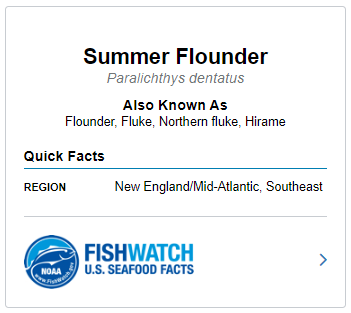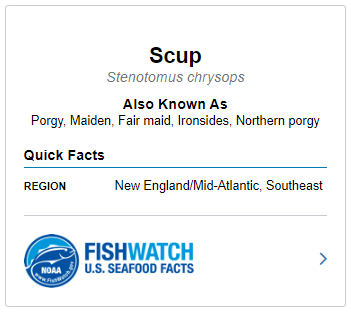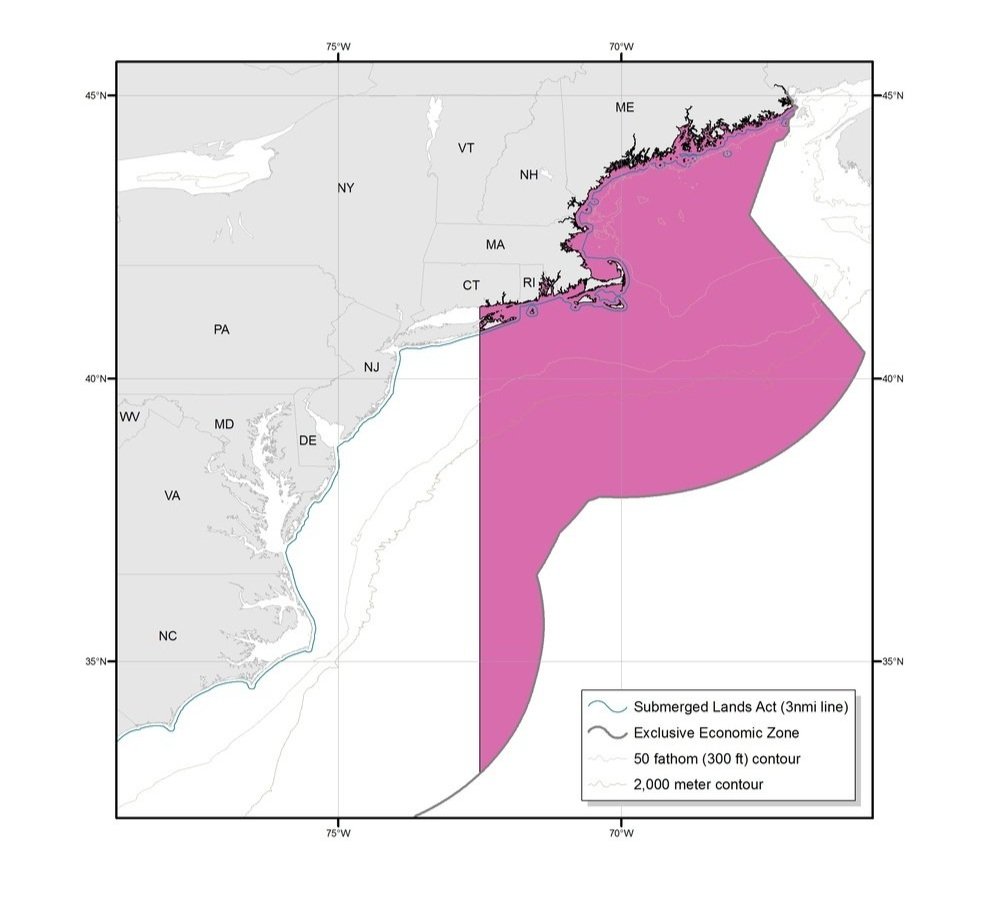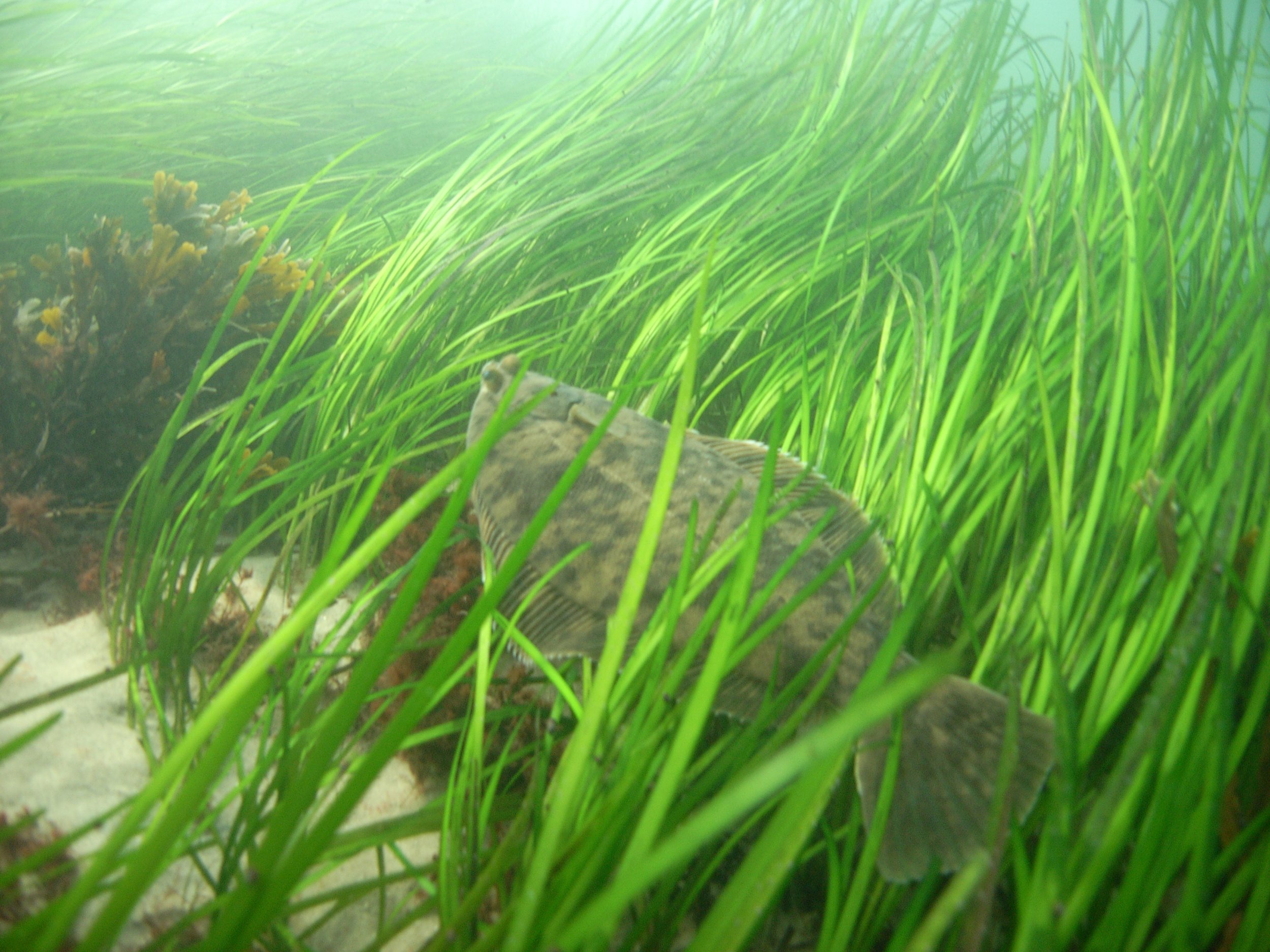Summer Flounder, Scup, Black Sea Bass
Overview
The Mid-Atlantic Fishery Management Council manages summer flounder, scup, and black sea bass under a single fishery management plan (FMP). Because of their presence in, and movement between, state waters (0-3 miles) and federal waters (3-200 miles), the Council manages these species cooperatively with the Atlantic States Marine Fisheries Commission. The two management bodies work in conjunction with the National Marine Fisheries Service (NMFS) as the federal implementation and enforcement entity. The management unit for summer flounder extends from the U.S.-Canadian border to the southern border of North Carolina, while the management units for scup and black sea bass extend from the U.S.- Canadian border to Cape Hatteras, North Carolina.
The Summer Flounder, Scup, and Black Sea Bass FMP uses output controls (catch and landings limits) as the primary management tool, with landings divided between the commercial and recreational fisheries. Quotas are set based on current science and the Council’s risk policy to avoid overfishing and rebuild stocks if/when necessary. The FMP also includes minimum fish sizes, bag limits, seasons, gear restrictions, permit requirements, and other provisions to prevent overfishing and ensure sustainability of the fisheries.
Staff Contacts
Summer Flounder: Kiley Dancy, (302) 526-5257
Scup: Hannah Hart, (302) 526-5263
Black Sea Bass: Julia Beaty, (302) 526-5250
Species
Related Pages and Resources
Summary of Accountability Measures for Summer Flounder, Scup, and Black Sea Bass (May 2023)
ASMFC Species Pages: Summer Flounder / Scup / Black Sea Bass
Regulations
Additional information about the management and status of summer flounder, scup, and black sea bass, including commercial and recreational fishing regulations, is available on the NOAA Fisheries FishWatch profiles linked below.
Federal regulations are also described in the Electronic Code of Federal Regulations (e-CFR) section for each species:
Actions Under Development
The section below lists any FMP frameworks or amendments currently under development. See the current year's Implementation Plan for details on upcoming specifications and other actions that may affect this FMP.
Fishery Performance Reports
The Council's advisory panels develop Fishery Performance Reports (FPR) each year to provide the Council and Scientific and Statistical Committee with an annual description of the factors that influenced fishing effort and catch within each of the Council’s fisheries. These reports are intended to summarize fishermen's "on-the-water" perspectives, including information about fishing effort, market trends, and environmental changes, and other factors that may not be fully accounted for in the stock assessment process.
Fishery Information Documents
Fishery Information Documents (FID) are developed annually for each species. The purpose of these documents is to summarize the most recent catch, landings, and effort data. Older FIDs are available here.
Fishery Management Plan and Amendments
Council-Sponsored Studies
Commercial and Recreational Allocation for Summer Flounder, Robert Hicks and Kurt Schnier (April 2017)
Commercial and Recreational Allocation for Summer Flounder: an update to the 2017 Report, Robert Hicks and Kurt Schnier (December 2020)








Summer Flounder
Paralichthys dentatus